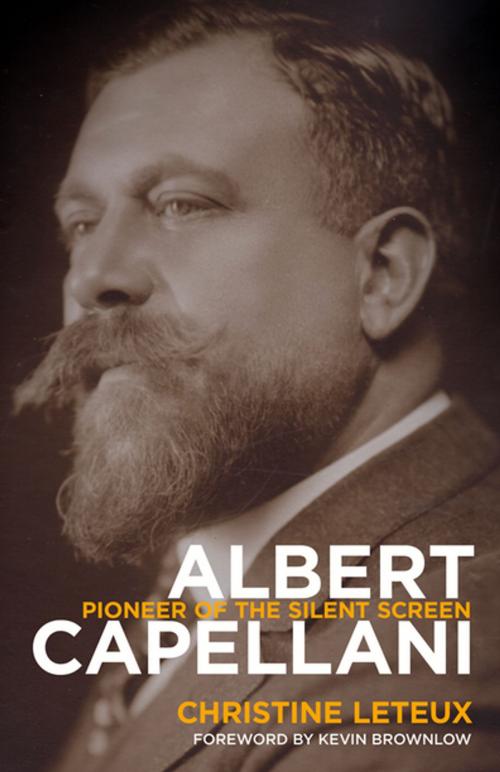Albert Capellani
Pioneer of the Silent Screen
Nonfiction, Entertainment, Film, History & Criticism, Biography & Memoir, Entertainment & Performing Arts, Performing Arts| Author: | Christine Leteux | ISBN: | 9780813166445 |
| Publisher: | The University Press of Kentucky | Publication: | December 9, 2015 |
| Imprint: | The University Press of Kentucky | Language: | English |
| Author: | Christine Leteux |
| ISBN: | 9780813166445 |
| Publisher: | The University Press of Kentucky |
| Publication: | December 9, 2015 |
| Imprint: | The University Press of Kentucky |
| Language: | English |
In recent years, technology has given films of the silent era and their creators a second life as new processes have eased their restoration and distribution. Among the films benefitting from these developments are the works of director Albert Capellani (1874--1931), whose oeuvre was instrumental in the development of cinema in the early 1900s and whose contributions rival those of D. W. Griffith.
For the first time in English, Christine Leteux's essential biography of Capellani offers a detailed assessment of the groundbreaking director. Capellani began his career in France at what was, at the time, the biggest film company in the world: Pathé. There, he directed the first multireel version of Les Miserables in 1912 as well as his masterpiece, Germinal (1913). After immigrating to the United States, Capellani worked at a number of production houses, including Metro Pictures Corporation, where he produced his two best-known films, The House of Mirth (1918) and The Red Lantern (1919). He was well known for making stage actors into movie stars, and Mistinguett, Stacia Napierkowska, and Alla Nazimova all rose to prominence under his direction.
The ups and downs of Capellani's career paralleled the evolution of the film industry and demonstrated the fickle nature of success. His technical and aesthetic achievements, however, paved the way for future filmmakers. Featuring a foreword by Academy Award--winning film historian Kevin Brownlow, Leteux's intimate biography paints a fascinating portrait of one of the leading pioneers of early cinema and provides a new window into the origins of the moving picture.
In recent years, technology has given films of the silent era and their creators a second life as new processes have eased their restoration and distribution. Among the films benefitting from these developments are the works of director Albert Capellani (1874--1931), whose oeuvre was instrumental in the development of cinema in the early 1900s and whose contributions rival those of D. W. Griffith.
For the first time in English, Christine Leteux's essential biography of Capellani offers a detailed assessment of the groundbreaking director. Capellani began his career in France at what was, at the time, the biggest film company in the world: Pathé. There, he directed the first multireel version of Les Miserables in 1912 as well as his masterpiece, Germinal (1913). After immigrating to the United States, Capellani worked at a number of production houses, including Metro Pictures Corporation, where he produced his two best-known films, The House of Mirth (1918) and The Red Lantern (1919). He was well known for making stage actors into movie stars, and Mistinguett, Stacia Napierkowska, and Alla Nazimova all rose to prominence under his direction.
The ups and downs of Capellani's career paralleled the evolution of the film industry and demonstrated the fickle nature of success. His technical and aesthetic achievements, however, paved the way for future filmmakers. Featuring a foreword by Academy Award--winning film historian Kevin Brownlow, Leteux's intimate biography paints a fascinating portrait of one of the leading pioneers of early cinema and provides a new window into the origins of the moving picture.















